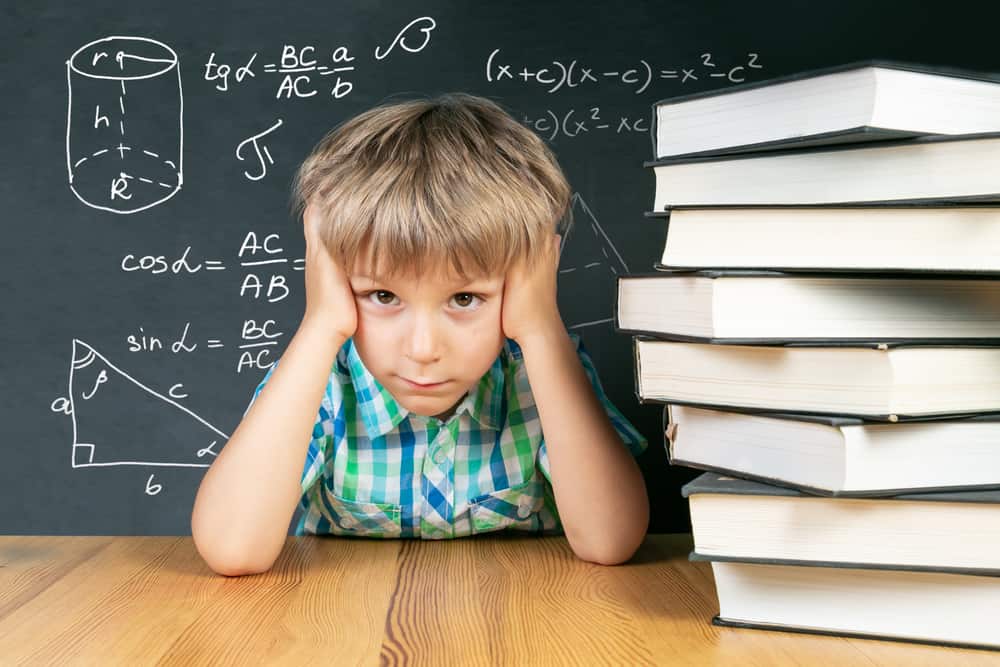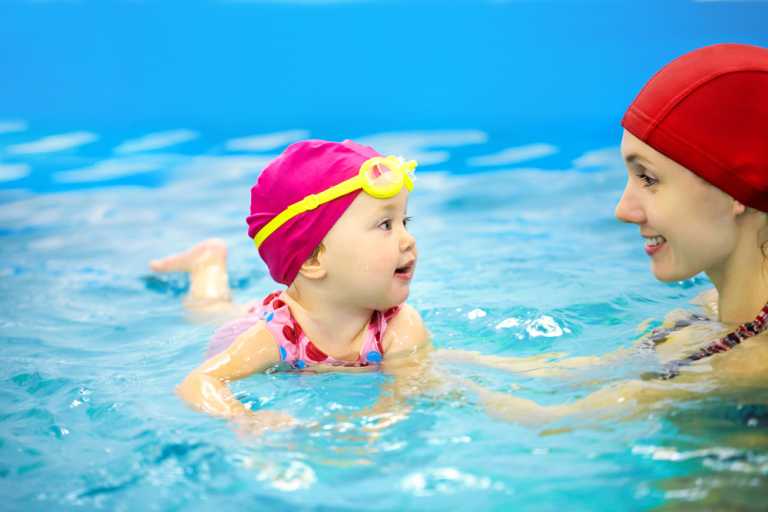Your child’s IQ, or intelligence quotient, can go some way to revealing their intellectual abilities and potential. Used right, it can highlight their specific needs, inform their education providers, and help them flourish.
Of course, IQ testing has limitations. It’s unreliable, can change during their teens, and only accounts for some types of intelligence. So it’s always best to take the results with a pinch of salt.
If you decide to have your child’s intelligence assessed, here’s how to interpret those sometimes confusing results: Plus, and most importantly, how to help your child thrive, no matter what the test says.
Children’s Average IQ by Age
IQ tests are scaled by age. This can make it tricky to work out what your little one’s score really means.
For example, the table below shows the average score achieved by each age group. If you look closely, you’ll notice these are way below the world’s average IQ of 100. So how can you tell whether or not your little one is going to be a genius? (Of course, they all will, in their own way).
| Age | Average IQ Test Score |
|---|---|
| 1 year old | 1 to 10 |
| 2 years old | 1 to 10 |
| 3 years old | 1 to10 |
| 4 years old | 5 to 20 |
| 5 years old | 5 to 20 |
| 6 years old | 5 to 20 |
| 7 years old | 10 to 30 |
| 8 years old | 10 to 30 |
| 9 years old | 10 to 30 |
| 10 years old | 30 to 50 |
| 11 years old | 30 to 50 |
| 12 years old | 40 to 65 |
| 13 years old | 40 to 65 |
| 14 years old | 60 to 80 |
| 15 years old | 70 to 90 |
| 16 years old | 70 to 90 |
| 17 years old | 80 to 100 |
| 18 years old | 80 to 100 |
As you can see, the average score increases each year, so you can’t take this number as their final IQ.
Instead, you need to compare the score to other children of the same age. This will tell you whether they’ve scored above or below average and will allow you to calculate their IQ score in the format you’re used to seeing.
Fortunately, this isn’t something you’ll need to do yourself. Average scores differ slightly depending on which type of test is used. Therefore, your test provider should be able to convert it for you.
After you’ve received your child’s age-adjusted result, you can compare it to the same rankings used by adults. These are shown in the table below:
| IQ | Classification | % of Population |
|---|---|---|
| 130+ | Very superior | 2.2% |
| 120–129 | Superior | 6.7% |
| 110–119 | High average | 16.1% |
| 90–109 | Average | 50% |
| 80–89 | Low average | 16.1% |
| 70–79 | Borderline | 6.7% |
| 69 and below | Extremely low | 2.2% |
If your child scores above 115, they may be classified as gifted according to the ranges in the table below:
| Classification | Score |
|---|---|
| Mildly gifted | 115 to 129 |
| Moderately gifted | 130 to 144 |
| Highly gifted | 145 to 159 |
| Exceptionally gifted | 160 to 179 |
| Profoundly gifted | 180+ |
It’s important to inform your child’s school if you believe they may be gifted. This is because they’ll have different educational needs, and plans should be put in place to help them thrive.
If your little one’s IQ falls below 89, they are classified as below average and may struggle in one or more subjects at school. Consider tutoring or fun extracurricular activities that support the skills they lack.
A score below 79 indicates a learning, development, or processing issue. You should report this to your child’s school so they can put an Individualized Learning Program (IEP) into place. This will ensure they provide extra support and appropriate tasks. They may also conduct further assessments to check for visual, auditory, or processing impairments.
When Can You Test a Child’s IQ?
The best age to test your son’s or daughter’s intelligence is between 7 and 10 years old. This provides the most stable result while giving you time to adjust their education.
It’s also possible to test toddlers, and you can get a result from children as young as 2 years and 6 months old. However, testing under 4-year-olds is notoriously unreliable, and the result will likely have changed by the time they’re teenagers.
How to Test a Child’s IQ
The quickest and cheapest way to test your child’s IQ is to use a free online test. These generally take around 30 minutes and involve multiple-choice questions that don’t rely on prior learning.
However, while the results you receive will give you a rough idea of your child’s abilities, you can’t rely on them. The result will likely vary between websites, and it won’t be accurate enough to inform their education provider.
If you would like a more reliable assessment, you may be able to access one through your child’s school or preschool. If this isn’t an option, you can visit a private psychologist.
Professional tests can be:
- Individual – An assessor uses questions and answers, game-like tasks, and pointing activities to determine the score.
- Computerized – Your child completes a test similar to the free ones online. This only works if your little one has used similar devices before.
- Non-verbal – These work well for children with autism who may struggle with a one-on-one verbal assessment.
How Accurate Are Children’s IQ Tests?
While tests undertaken after age 4 are fairly reliable, many things can throw off the scores. For example, your child may:
- Be having an off day.
- Have slept poorly before the test.
- Experience test anxiety.
- Be gifted but have a visual, auditory, or physical issue that prevents them from accessing the test.
- Be hiding their abilities.
- Be unwilling to guess.
- Feel uneasy around the assessor.
Your child’s intelligence quotient will also change as they develop. Experts used to believe that intelligence stabilized at 10 years old. However, recent studies have found that IQ can move up to 20 points during the teenage years.
So, it’s important not to label children as a result of their score. Taking the result as gospel can lead to poor self-esteem, ineffective schooling, and unnecessary stress.
Can a Child’s IQ Improve?
The most important thing about testing a child’s intelligence is recognizing that it’s not fixed.
While it’s true that genetics have a huge influence on intelligence, environment and education also have a part to play. So, yes, your little one’s score can increase with love and support.
Can a Child’s IQ Decrease?
In some cases, children’s IQ scores can decrease. Although the causes are not fully understood, social deprivation and disrupted school attendance can cause a drop in intelligence.
How to Increase a Child’s IQ
Although genetics and socioeconomics play the largest roles in your little one’s IQ, there are some things you can do to improve it.
For example, you could:
- Play with blocks to develop spatial skills.
- Talk to them mindfully and make eye contact.
- Have them enjoy exercise for 60 minutes per day.
- Encourage a love of reading.
- Sign them up for music lessons.
- Speak to them in a second language.
- Provide a healthy diet.
- Take steps to ensure they get enough sleep.
- Praise them for effort and resilience, not just being “smart.”
- Teach a growth mindset. The idea that intelligence isn’t fixed and can grow.
As you’ll notice, fun, love, and support are key.


Hi! My son, Ralph, has an IQ of 145. He is 8 years old. He is a male. Reply so I can know the advantages and disadvantages of Ralph. Thanks
HI,
RALPH IS VERY SMART AND WILL BE ABLE TO DO PHYSICS AT THE QUANTUM LEVEL. THE DISADVANTAGE OF RALPH IS THAT HE WILL LIKELY DEVELOP “SCHRWEINKER SYNDROME”.
GOODBYE